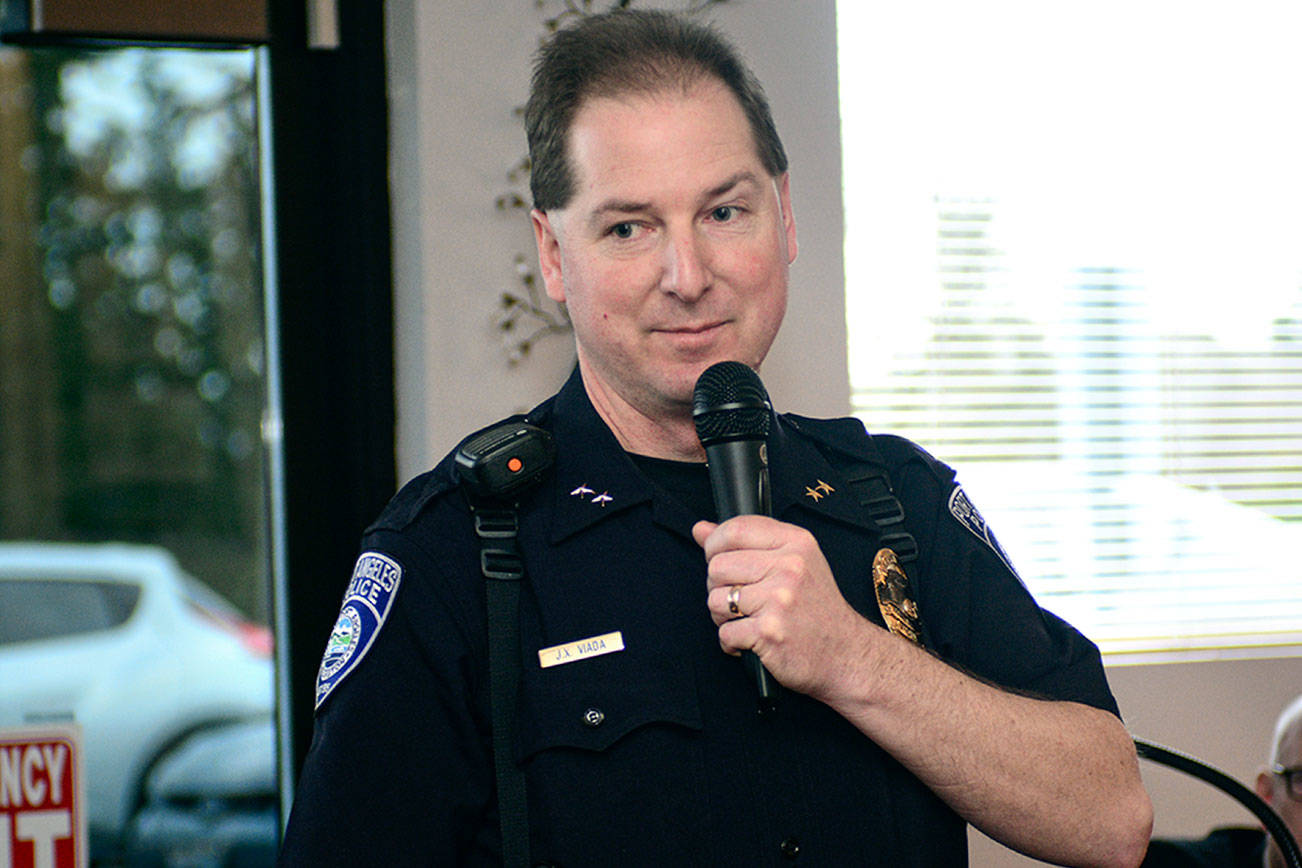PORT ANGELES — The Port Angeles Police Department is exploring using body cameras, though state public records laws remain an obstacle for the effort, said Chief Brian Smith.
He and Deputy Chief Jason Viada told those who attended the Port Angeles Business Association meeting Tuesday that under current laws, records requests for body camera footage could encumber the department’s resources because of the required exemptions and broad language in the law.
“The public has made it clear that people like the idea of our actions being documented,” Smith said in a follow-up interview. “There’s a nationwide push to do that.”
Documenting incidents with video would be beneficial for the department too, he said, which could then use the footage as evidence.
The biggest issue with current law, he said, is with the required exemptions.
At minimum it would take the department the length of each video to go through all the required redactions, he said.
Among the redactions required is footage of the inside of a residence, minors and the identity of victims or witnesses involving domestic violence or sexual assault.
“We can create the record and use it for investigative purposes, but we can’t disseminate it until we’ve scrubbed all the privacy issues out of the records,” he said.
There are more redactions required for body cameras than for stationary cameras posted around the city, he said.
There are 28 waterfront cameras that PAPD uses now. Video is stored for 30 days.
Lawmakers required more exemptions in video from body cameras in legislation passed last year.
The department doesn’t have the resources to edit video for body cams worn by each of its 24 uniformed officers, he said.
“That wouldn’t be sustainable,” he said. “We could probably manage a couple of body cameras.”
Though the department doesn’t use body cameras now, it did test them in 2012 and hopes to test more in the future.
The department is looking at two types of body cameras, one that would provide a live feed and another that would just store video once officers returned to the office.
“The second way is cheaper but the first way is better,” he said. “I’m interested in doing the first.”
Police would have to test both hardware and software before moving forward, he said.
He said he’s not too concerned about how the department would acquire funding for cameras because of the amount of grant funding available for providing body cameras.
“It’s not a budget issue; we can find grant money all day long,” he said. “We have a statutory problem.”
Smith said it’s possible the department could move forward with implementing a body camera system before laws are changed, but said it would need to be done carefully.
Though nothing is set in stone, he said he could see using body cameras for specific types of incidents, such as high-level felonies or pursuits.
“That’s something I could see,” he said.
The cameras could be off most of the time, especially during things such as foot patrols, he said.
Before making a decision, he said the department will need to have a legal opinion for a variety of sources, including the city attorney and the Washington Association of Sheriffs and Police Chiefs.
“We will work through this thoughtfully and carefully,” he said. “We will be careful, deliberate and well thought out in our approach.”
________
Reporter Jesse Major can be reached at 360-452-2345, ext. 56250, or at jmajor@peninsuladailynews.com.

